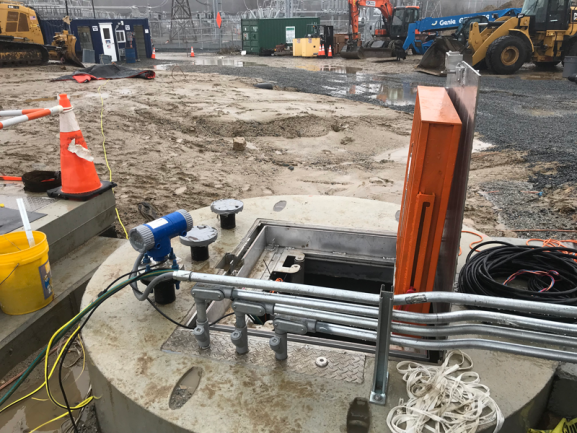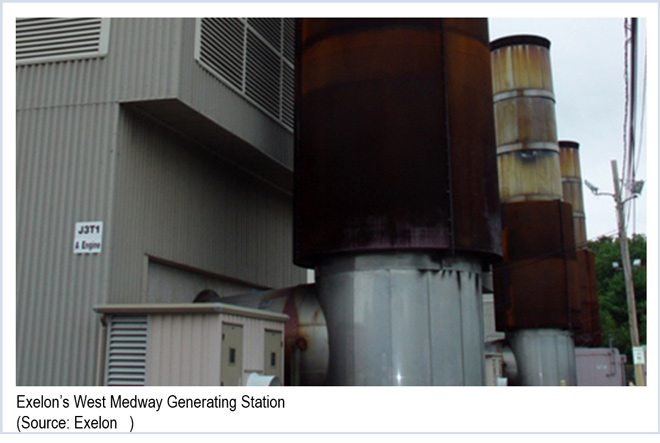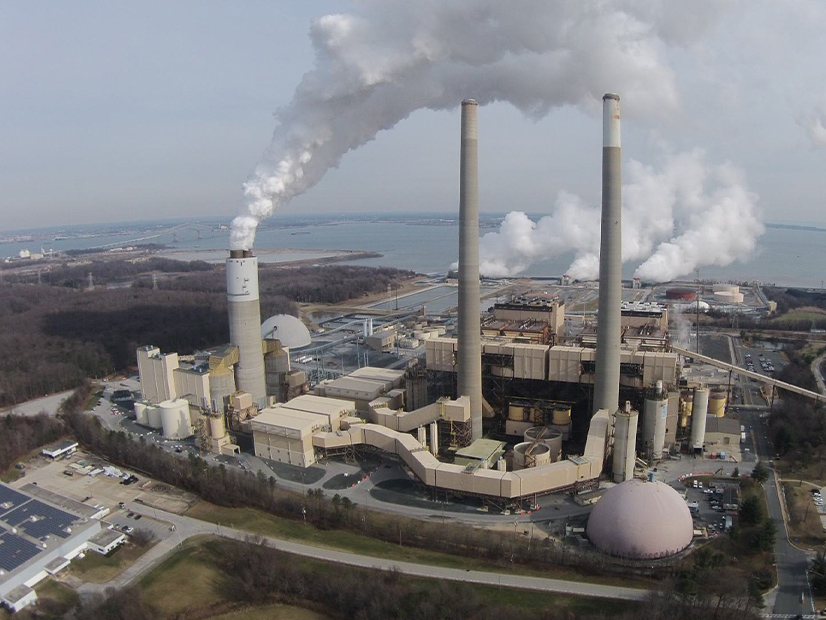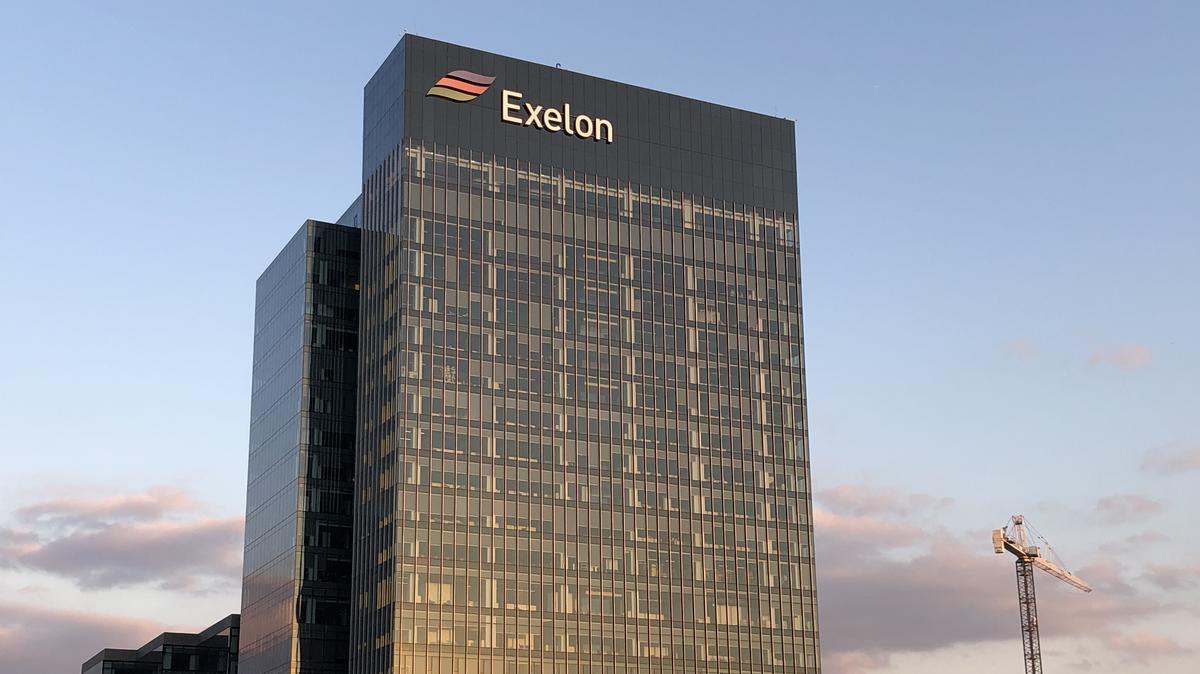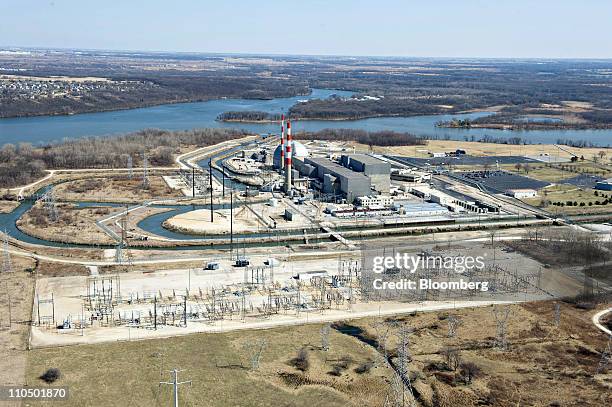Exelon Power West Medway Generating Station

West Medway, Massachusetts – The hum of the Exelon Power West Medway Generating Station, a fixture of the town for nearly two decades, is now accompanied by a growing chorus of concerns. Residents and environmental groups are raising questions about the plant's long-term environmental impact and its place in a rapidly evolving energy landscape.
The gas-fired power plant, a crucial element in the region's energy grid, is facing increasing scrutiny as Massachusetts pushes towards its ambitious clean energy goals. The debate centers on whether the plant can adapt to a future dominated by renewable resources or if its continued operation hinders the state's progress towards a sustainable energy system.
The Heart of the Matter
The Exelon Power West Medway Generating Station, a 175-megawatt natural gas-fired plant, has been a key supplier of electricity to the region since its commissioning in 2003. The plant's purpose is to provide a reliable source of power, particularly during peak demand or when renewable energy sources are intermittent.
However, with Massachusetts committed to achieving net-zero emissions by 2050, the plant's reliance on fossil fuels is under intense examination. The core question is whether the plant's role as a grid stabilizer justifies its continued environmental footprint in the long run.
Environmental Concerns and Community Impact
One of the primary concerns raised by local environmental groups, such as the Charles River Watershed Association, is the plant's emissions profile. While natural gas is generally considered cleaner than coal, it still produces greenhouse gases and air pollutants, including nitrogen oxides (NOx) and particulate matter.
These emissions contribute to climate change and can exacerbate respiratory problems, especially for vulnerable populations living near the plant. Data from the Environmental Protection Agency (EPA) shows that the plant's emissions are within permitted levels.
However, critics argue that these levels are not stringent enough to meet the state's aggressive climate goals. Furthermore, concerns have been raised about the plant's water usage and its potential impact on the local ecosystem. The plant uses water for cooling purposes, and while the process is regulated, some fear its impact on local water bodies.
Exelon's Perspective: Reliability and Transition
Exelon, the owner and operator of the West Medway Generating Station, defends the plant's role as a vital component of the regional energy infrastructure. The company argues that the plant provides essential reliability to the grid, ensuring that electricity is available when needed, regardless of weather conditions or the availability of renewable sources.
In a statement, Exelon emphasized its commitment to reducing its carbon footprint and transitioning to a cleaner energy future. The company is exploring options for integrating renewable energy sources into its operations and investing in technologies like carbon capture and storage.
They maintain that completely phasing out natural gas power plants too quickly could jeopardize the stability of the grid and lead to power outages. Exelon believes a gradual and well-planned transition is necessary to ensure a reliable and affordable energy supply.
The Role of Renewable Energy and Battery Storage
Advocates for a faster transition to renewable energy argue that advancements in battery storage technology and the increasing availability of renewable energy sources like solar and wind power are making fossil fuel plants like the West Medway Generating Station increasingly obsolete.
Massachusetts has been actively promoting the development of renewable energy projects and investing in energy storage solutions. The state’s Department of Energy Resources (DOER) has set ambitious targets for renewable energy deployment, and is incentivizing the development of battery storage systems that can store excess renewable energy for later use.
These developments could reduce the reliance on natural gas-fired power plants and pave the way for a cleaner energy future. However, challenges remain in scaling up renewable energy infrastructure and ensuring the reliability of the grid during periods of peak demand.
Regulatory Landscape and Future Prospects
The future of the Exelon Power West Medway Generating Station will be largely determined by regulatory decisions and market forces. The Massachusetts Department of Environmental Protection (DEP) is responsible for enforcing environmental regulations and issuing permits for power plants.
The plant's existing permits will eventually need to be renewed, providing an opportunity for regulators to impose stricter emission limits or require the plant to adopt cleaner technologies. The economic viability of the plant will also depend on the price of natural gas and the competitiveness of renewable energy sources.
Changes in electricity market regulations could also impact the plant's profitability. The regional grid operator, ISO New England, is exploring ways to incorporate more renewable energy into the grid and incentivize investments in clean energy technologies.
A Crossroads for Energy in West Medway
The debate surrounding the Exelon Power West Medway Generating Station reflects a broader tension between the need for reliable energy and the urgency of addressing climate change. Finding a balance between these competing priorities will require careful consideration of environmental impacts, economic factors, and the technological advancements that are transforming the energy landscape.
The future of the plant remains uncertain, but it is clear that the pressure to transition to a cleaner energy future is only going to intensify. The community, Exelon, and state regulators will need to work together to develop a plan that addresses the concerns of all stakeholders and ensures a sustainable energy future for West Medway and the Commonwealth.
The plant's fate will serve as a bellwether for how Massachusetts navigates its ambitious climate goals while maintaining a reliable and affordable energy supply for its residents and businesses.




